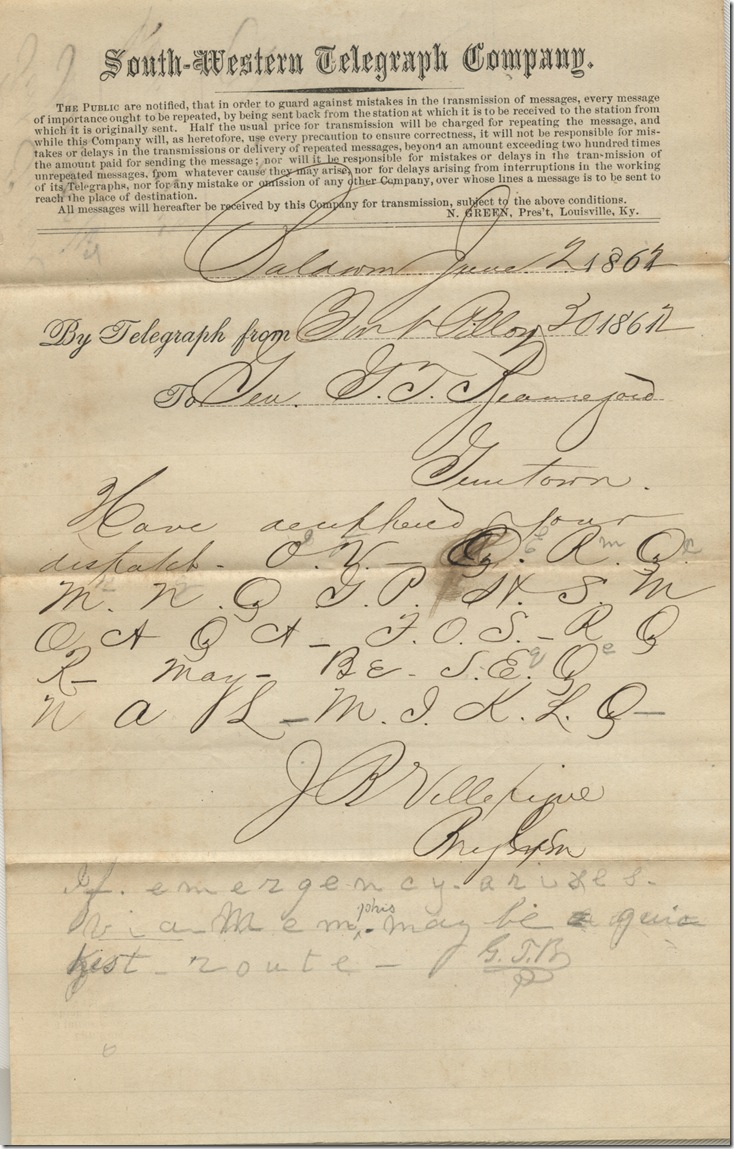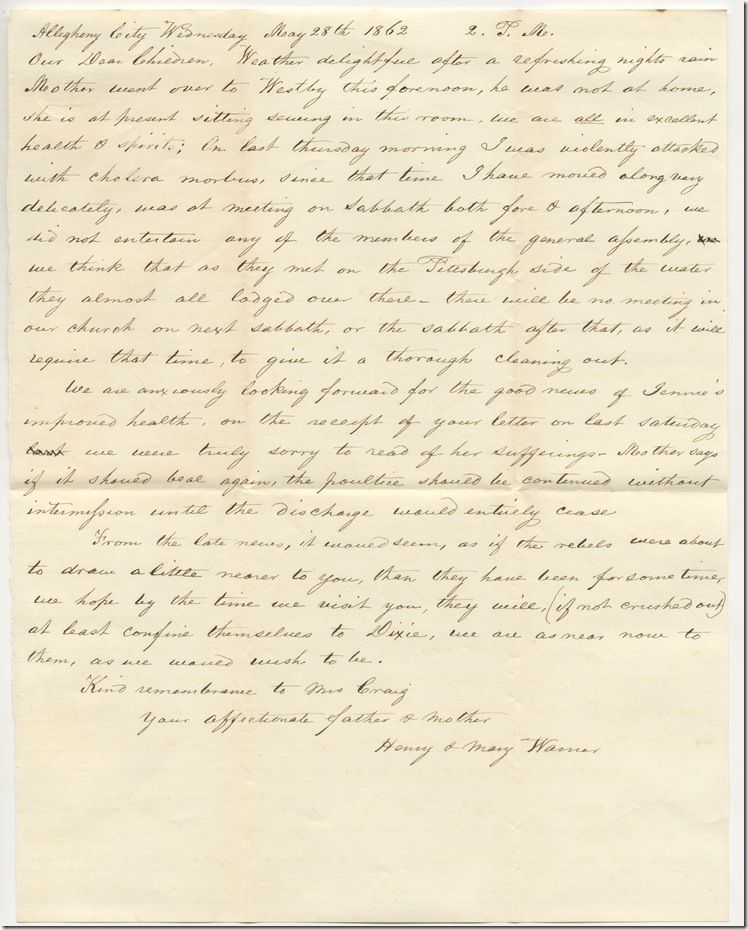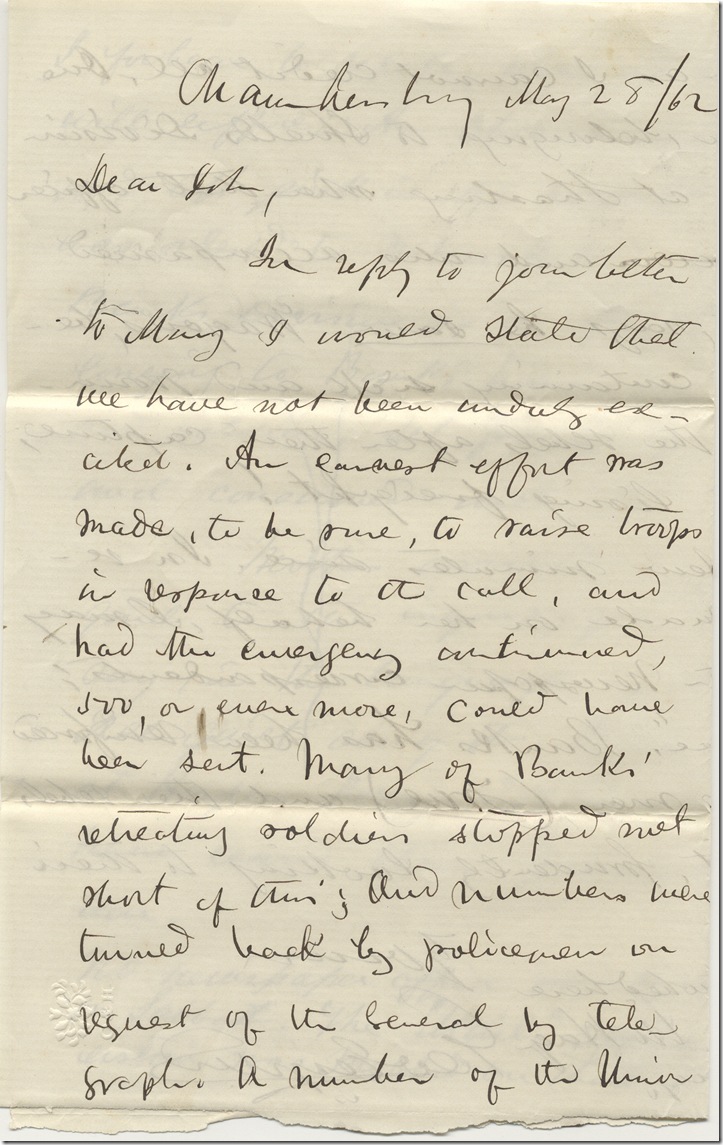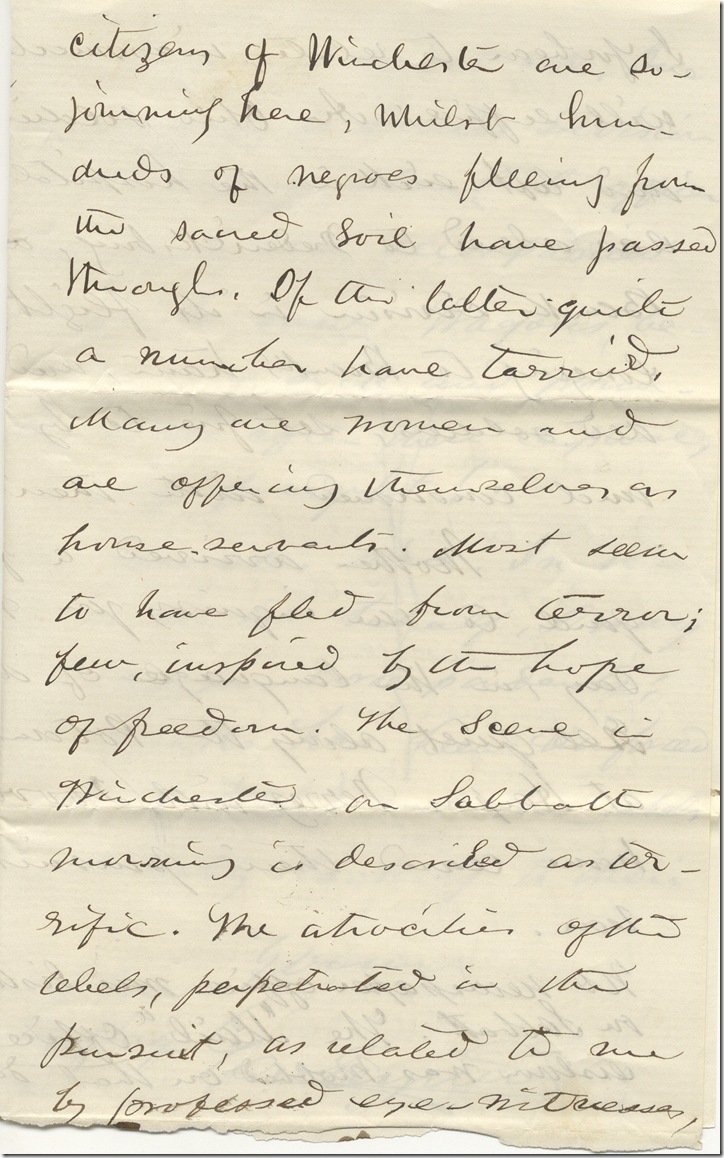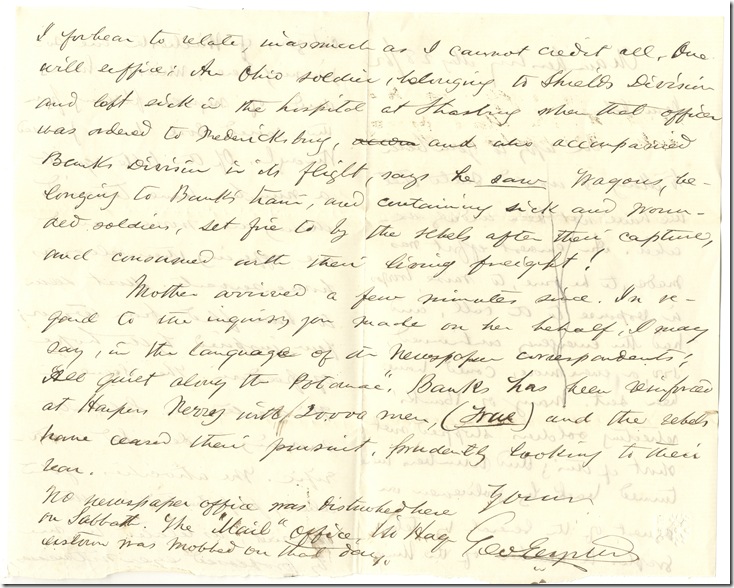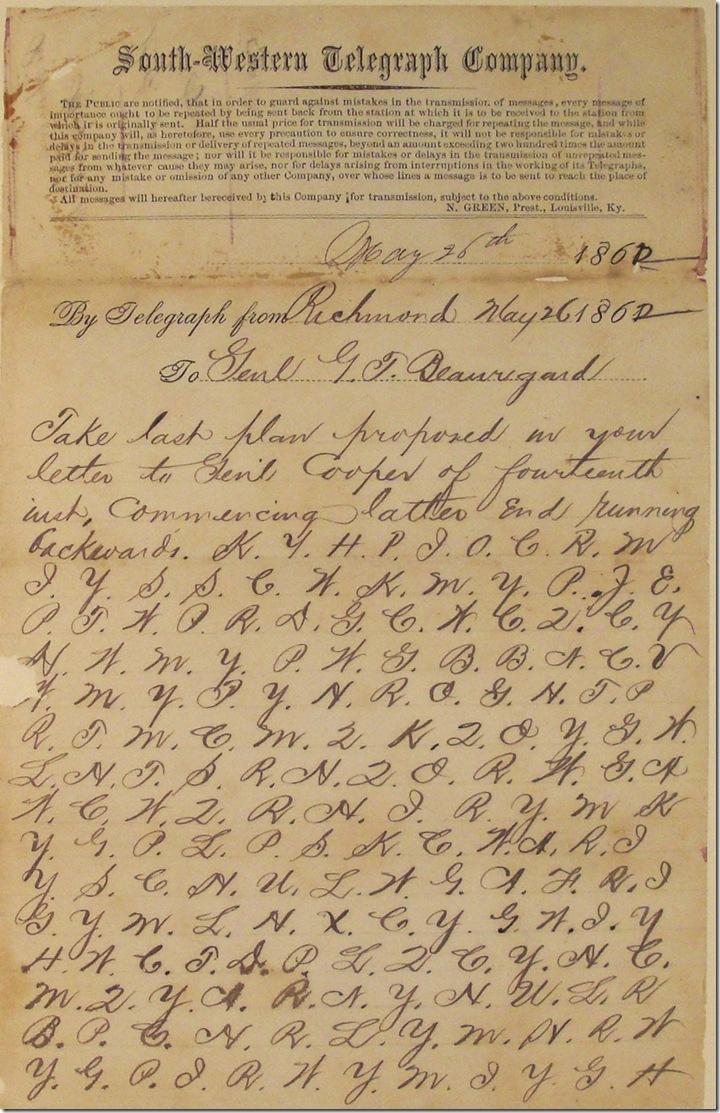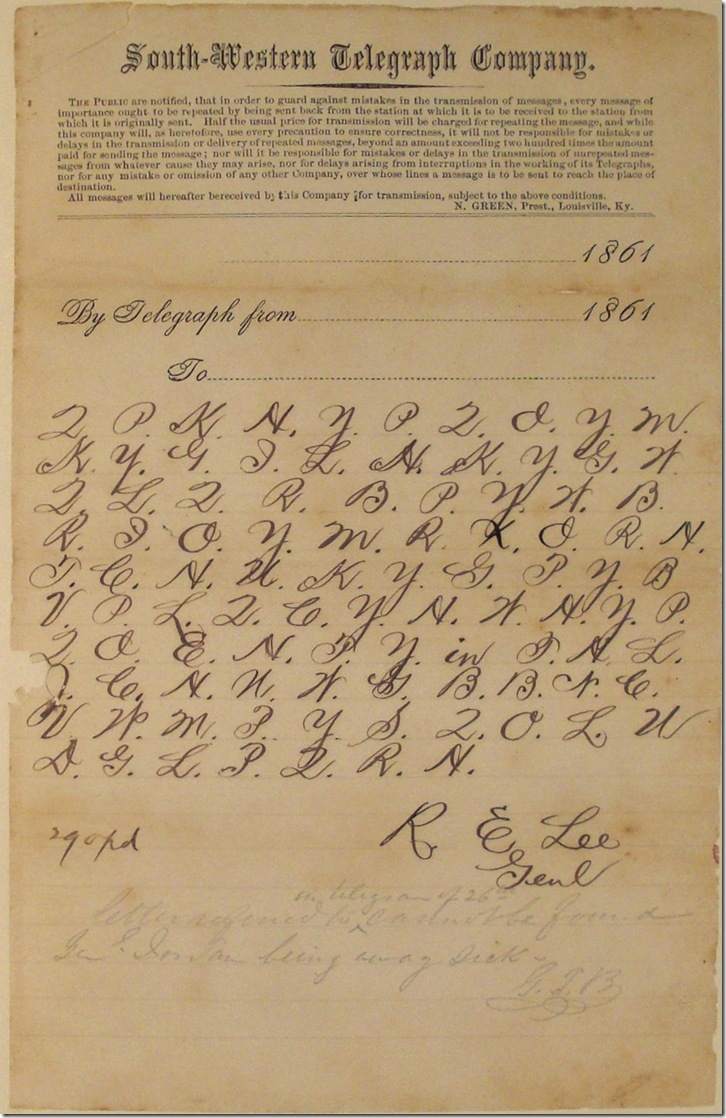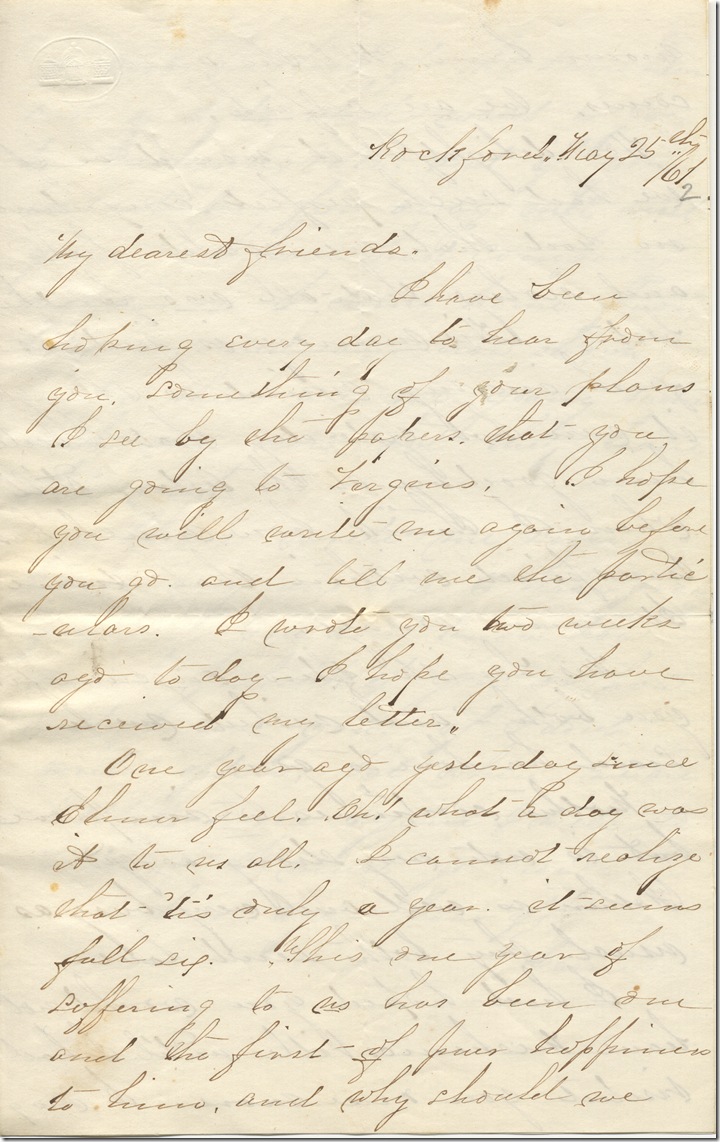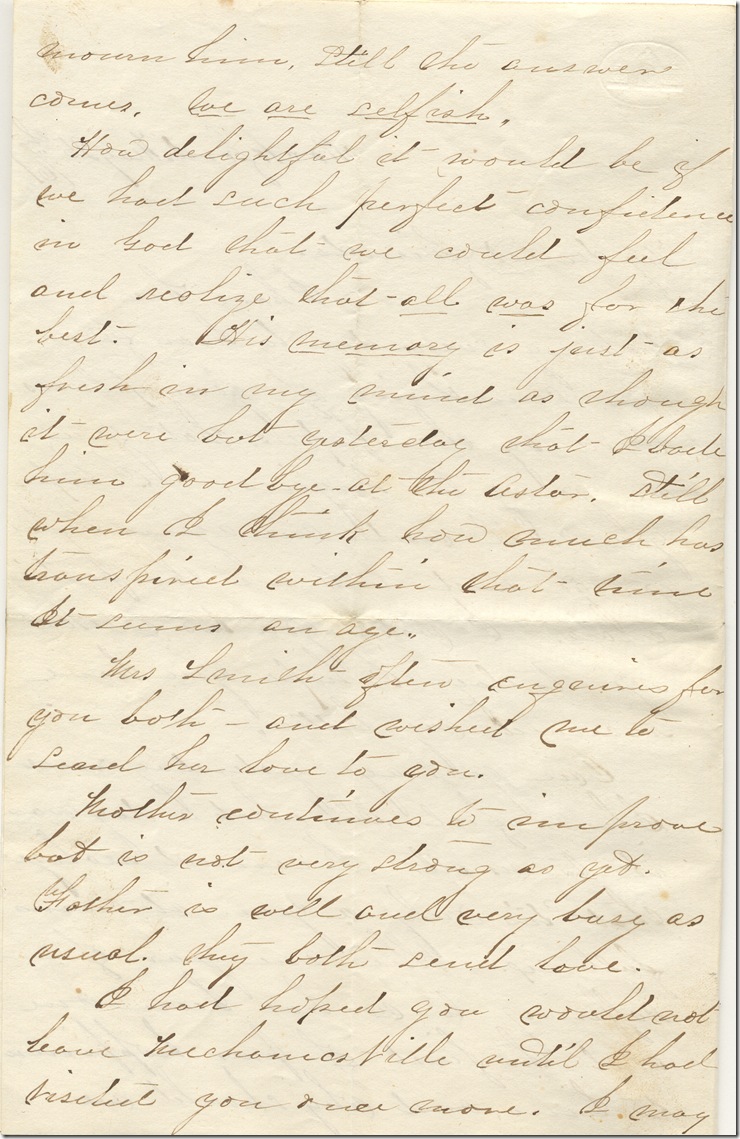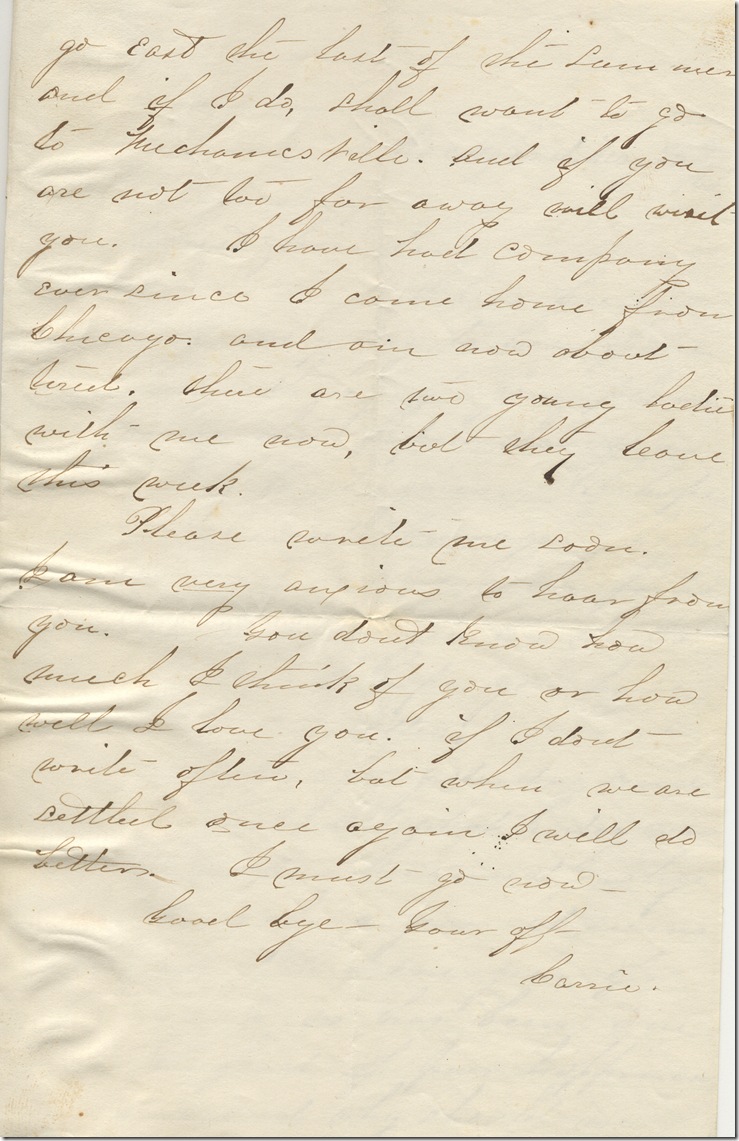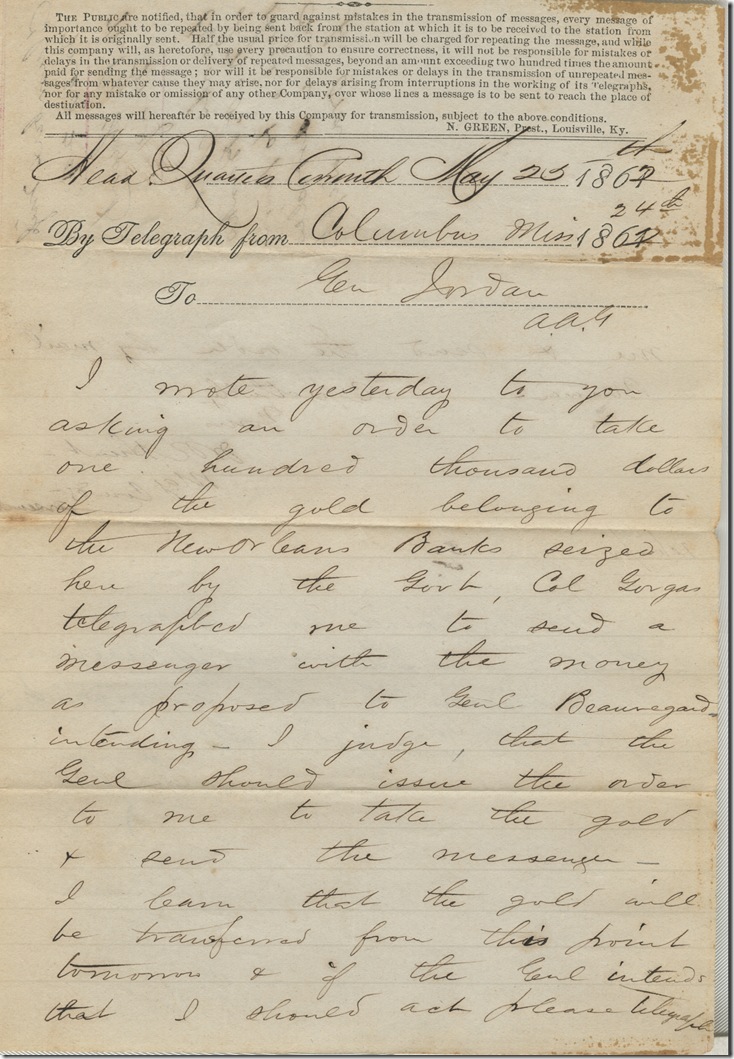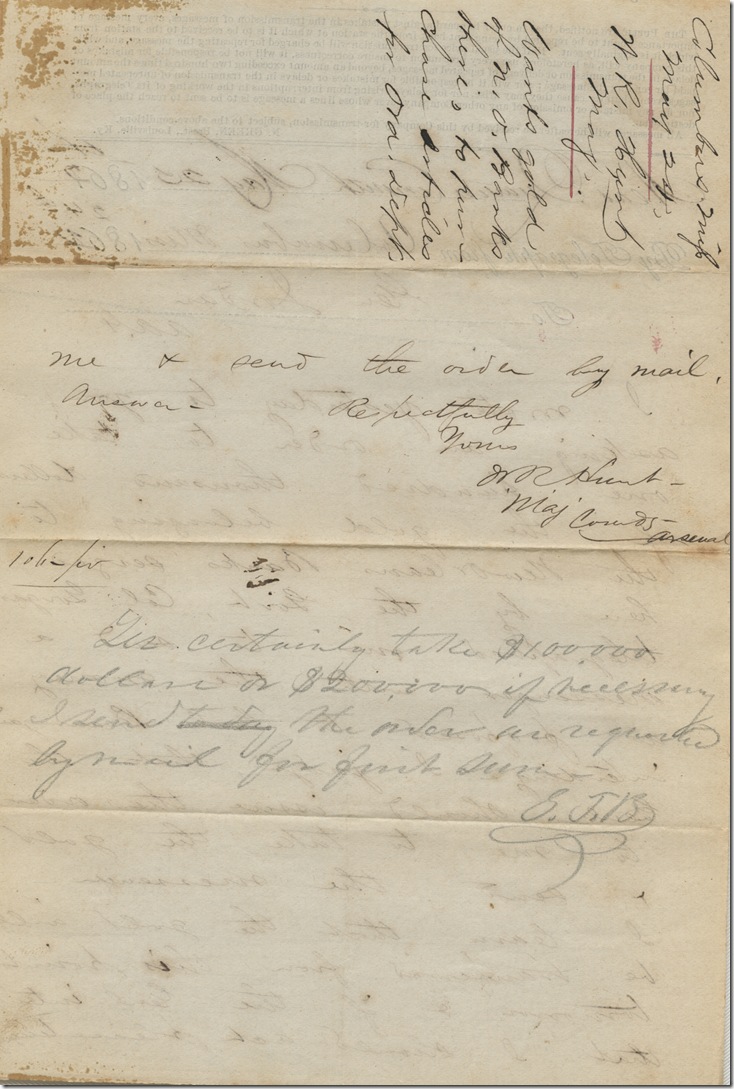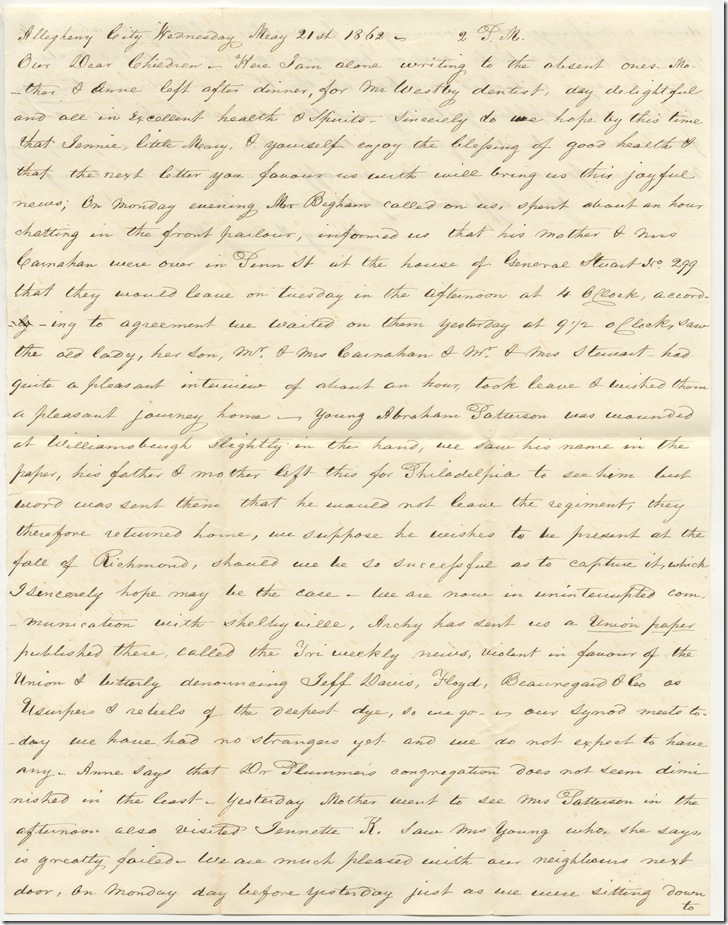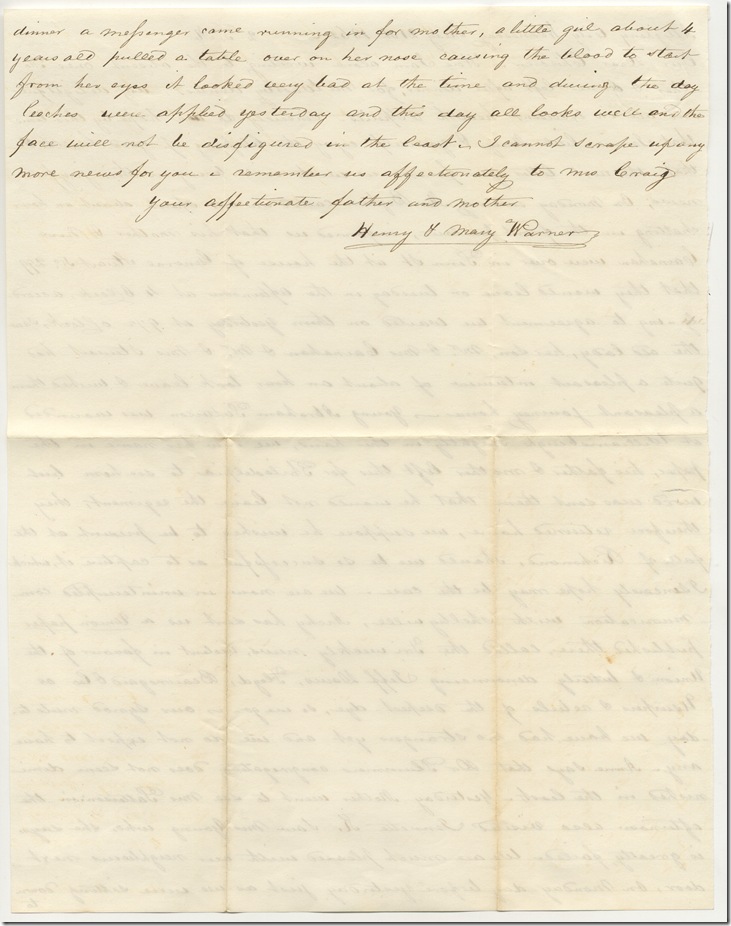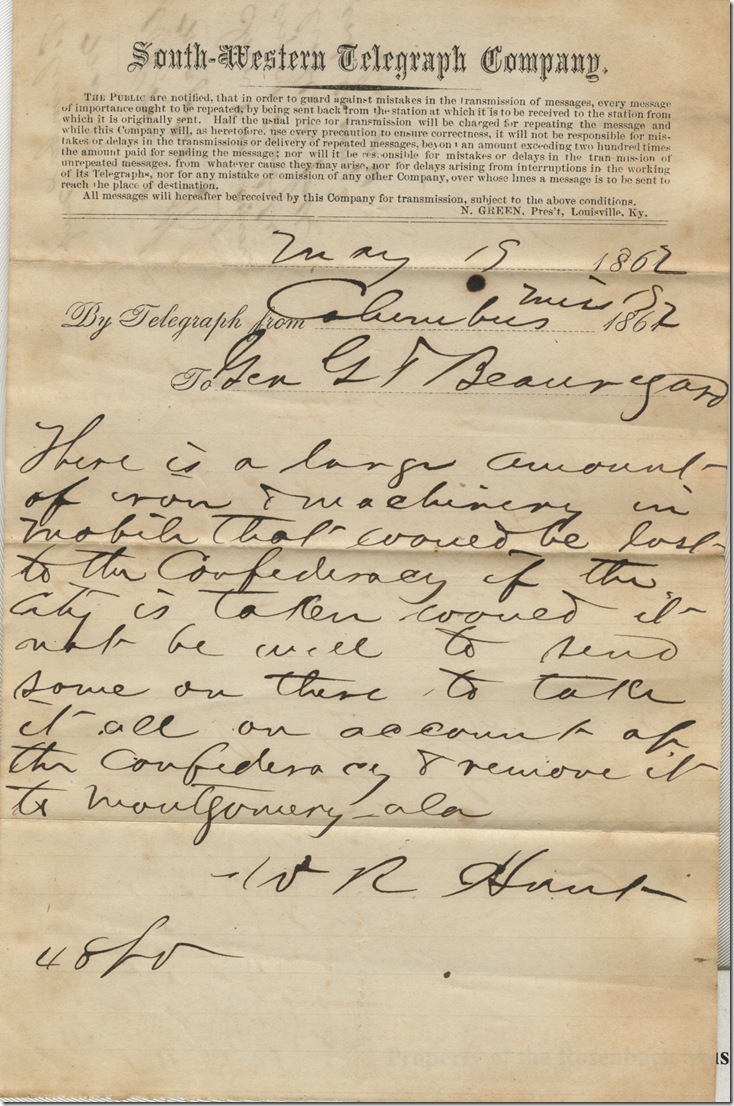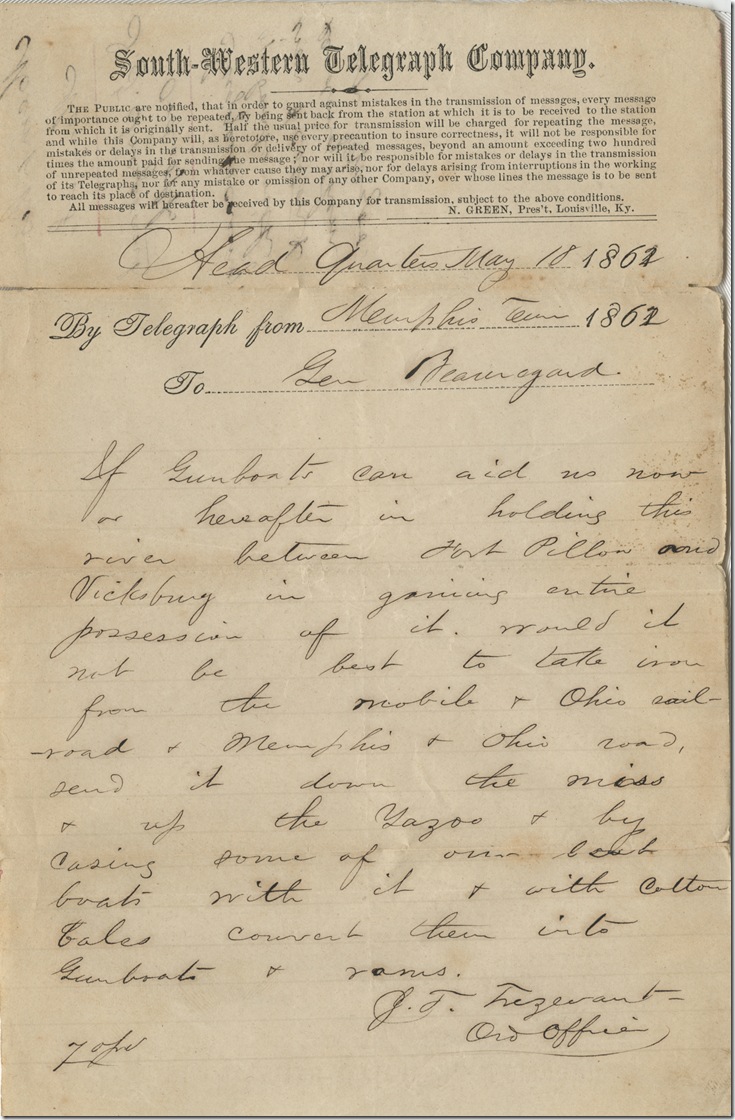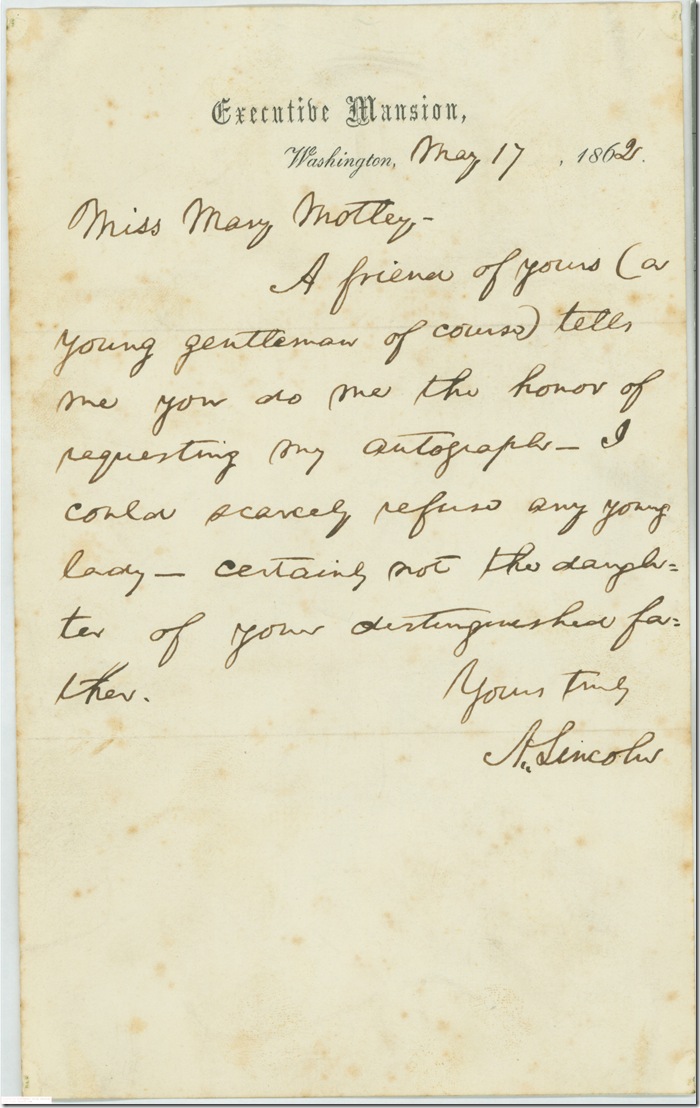Pierre Gustave Toutant Beauregard was a Louisiana-born general of the Confederate States Army. He had graduated second in his class from West Point in 1838 and was an admirer of Napoleon. He achieved fame early in the Civil War for commanding the Fort Sumter bombardment and as the victor of the first battle of Manassas. He later served in the Western Theater (including Shiloh and Corinth), Charleston, and the defense of Richmond, but his career was hampered by friction with Jefferson Davis and other generals.
This is one of approximately 1000 military telegrams in P.G.T. Beauregard’s papers at the Rosenbach.
Transcript:
Baldwin June 2, 1862
By telegraph from Fort Pillow 30 1862
To Gen. G. T. Beauregard
Gemtown
Have deciphered four dispatch.O.V.Q.R.Q.M.N.Q.G.P.H. S. M. O S Q A-F.O.S.R Q R_ May_ BE. S.E. Q R. N. A L_M.i.k.l.Q.
J B Villepigue
If emergency arrives via Memphis may be quickest route G.T.B.
Citation: John Bordenave Villepigue, telegram to G. T. Beauregard. Fort Pillow, Tenn.; 30 May 1862. AMs 1168/11
